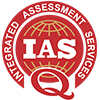Introduction to ISO 27001 Lead Auditor Training
In today’s digital age, safeguarding sensitive information is paramount for organizations across all industries. The International Organization for Standardization (ISO) developed ISO 27001, a globally recognized standard for information security management systems (ISMS), to address this need. Within the framework of ISO 27001, the role of the lead auditor is vital in ensuring compliance and enhancing information security practices. This article explores the essentials of ISO 27001 lead auditor training, highlighting its significance and key components.
Understanding ISO 27001 Overview of ISO 27001
ISO 27001 provides a systematic approach to managing and protecting information assets, including financial data, intellectual property, and customer information, against security threats.
Role of the Lead Auditor
Lead auditors play a pivotal role in evaluating the effectiveness of an organization’s ISMS, conducting audits to assess compliance with ISO 27001 requirements, identifying security risks, and driving continual improvement.
Importance of ISO 27001 Lead Auditor Training
Comprehensive Understanding of ISO 27001
Training equips participants with a deep understanding of the ISO 27001 standard, its requirements, principles, and implementation guidelines, laying the foundation for effective auditing practices.
Development of Auditing Skills
The course provides participants with the necessary skills to plan, conduct, report, and follow up on ISMS audits, including auditing techniques, interviewing skills, and report writing.
Contribution to Information Security Excellence
By becoming proficient lead auditors, participants contribute to strengthening information security practices within their organizations, mitigating risks, and protecting valuable assets.
Key Components of ISO 27001 Lead Auditor Training
Understanding Information Security Management Systems
Participants learn about the key concepts, principles, and requirements of ISO 27001, including risk assessment, asset management, access control, and incident management.
Audit Planning and Preparation
The course covers the process of planning and preparing for ISMS audits, including developing audit plans, checklists, and audit schedules tailored to organizational needs.
Conducting Audits
Participants gain practical experience in conducting audits through simulated audit scenarios, including assessing security controls, reviewing documentation, and interviewing relevant stakeholders.
Reporting and Follow-Up
Training includes guidance on preparing comprehensive audit reports, documenting findings, conclusions, and recommendations for corrective action. Participants also learn how to follow up on audit findings to ensure timely resolution.
Types of ISO 27001 Lead Auditor Training Classroom-Based Training
Instructor-led classroom training offers a structured learning environment with opportunities for interactive discussions, case studies, and hands-on exercises.
Online Training Programs
Online training provides flexibility for participants to learn at their own pace and convenience, often including multimedia content, quizzes, and assessments to reinforce learning.
Blended Learning Approaches
Blended learning combines both classroom-based and online training elements, offering the benefits of both approaches for enhanced learning outcomes.
Choosing the Right Training Program Accreditation
Select a training program accredited by recognized certification bodies or accreditation organizations to ensure quality and credibility.
Content Relevance
Choose a training program that covers all relevant aspects of ISO 27001 auditing and aligns with specific learning objectives and career goals.
Practical Experience
Look for training programs that offer opportunities for practical experience, such as simulated audits or case studies, to enhance learning effectiveness.
Conclusion
Becoming proficient in ISO 27001 lead auditing is essential for organizations committed to safeguarding information assets and mitigating security risks. ISO 27001 lead auditor training provides participants with the knowledge, skills, and certification necessary to effectively audit ISMS and drive continual improvement in information security practices. By investing in ISO 27001 lead auditor training, organizations not only ensure compliance with regulatory requirements but also demonstrate their commitment to information security excellence.
